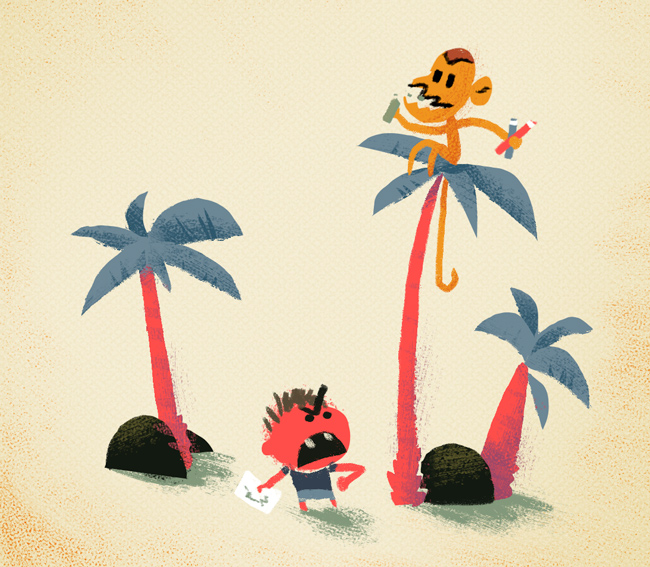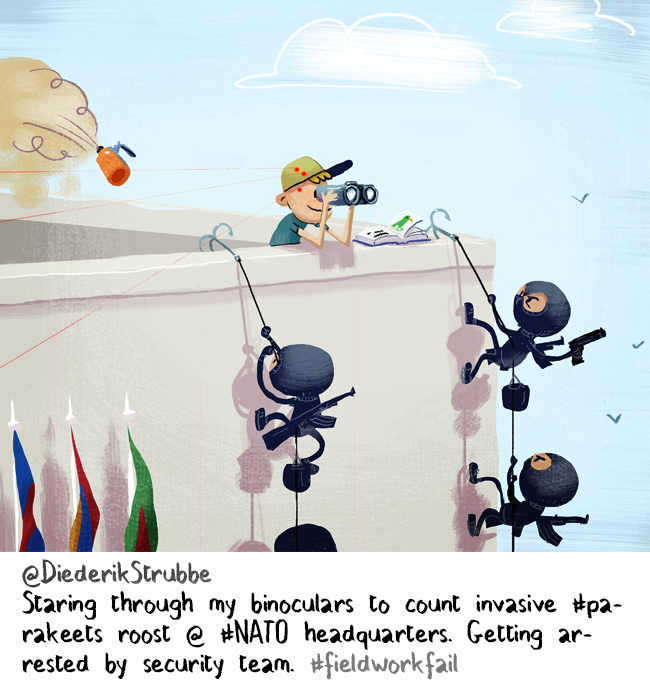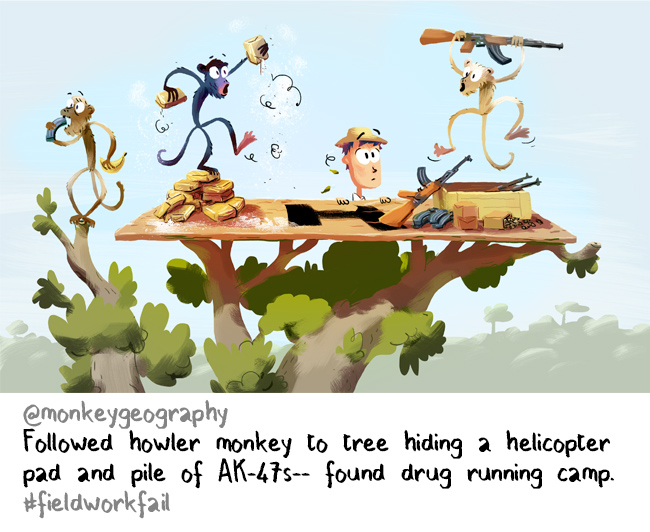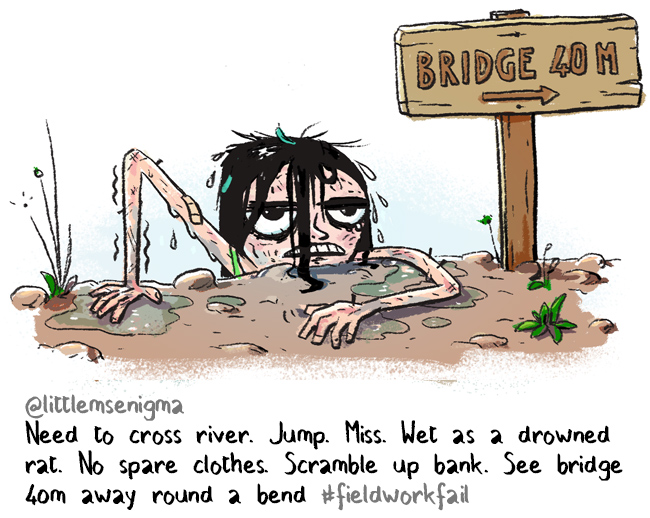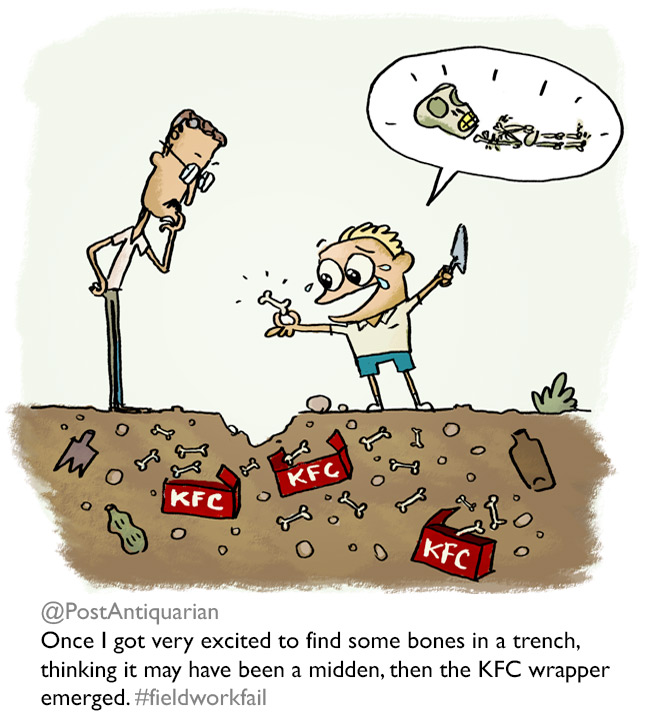Electric Feel
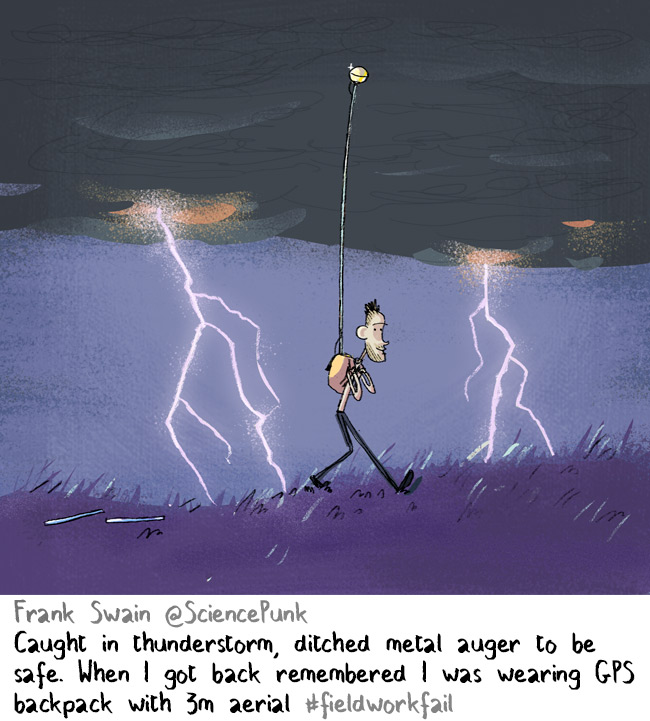

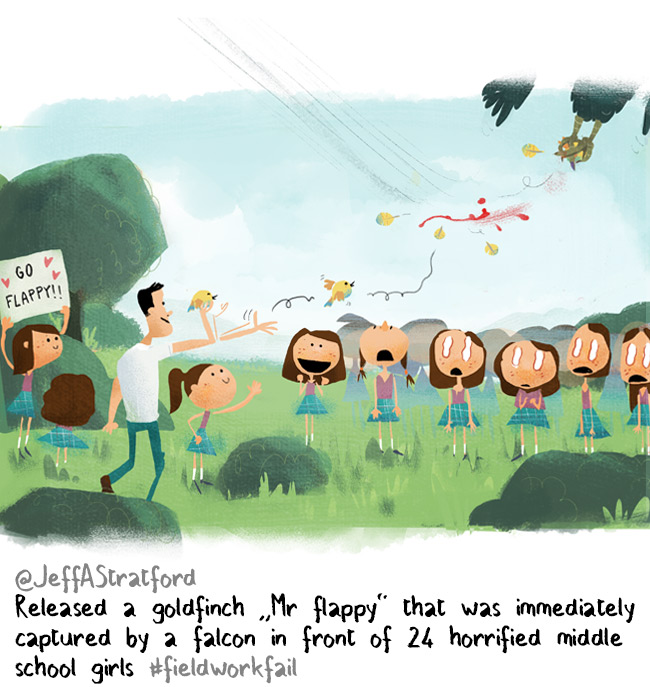

What were you doing with this group?
I was leading a group of school girls on a bird walk along the Susquehanna River. The program is called Women Empowered By Science (WEBS) and we bring groups of young women on campus to do science with university faculty.
What did you do with the birds after catching them ?
Depends on the project. I was looking at blood parasites along urban-rural gradients so I was taking a small blood sample and releasing them. Lately, I’ve been catching birds to examine diets and I take blood samples and a tail feather. We take blood to figure out diets by looking at the carbon-nitrogen isotopes.
All the birds are released and we often catch them in successive years.
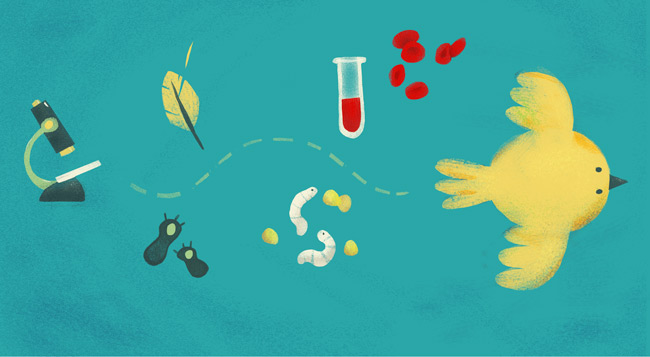
What happened after the unfortunate fate of Mr. Flappy ?
The teacher complained to our department chair that we didn’t ensure the safety of birds – that’s true but how do you keep falcons from eating birds? Anyways, the daughter of that teacher was in WEBS a few years later and was skeptical of the whole exercise of catching birds. Well, in WEBS camp we captured a bunch of birds, all flew off OK, and the daughter came my shadow for the rest of the day.
What is your best memory working on the field ?
I’ve done research in the Brazilian Amazon, longleaf pine forests of Alabama, and old forests in the Poconos, but my favorite moments are catching birds for kids in our local urban park.
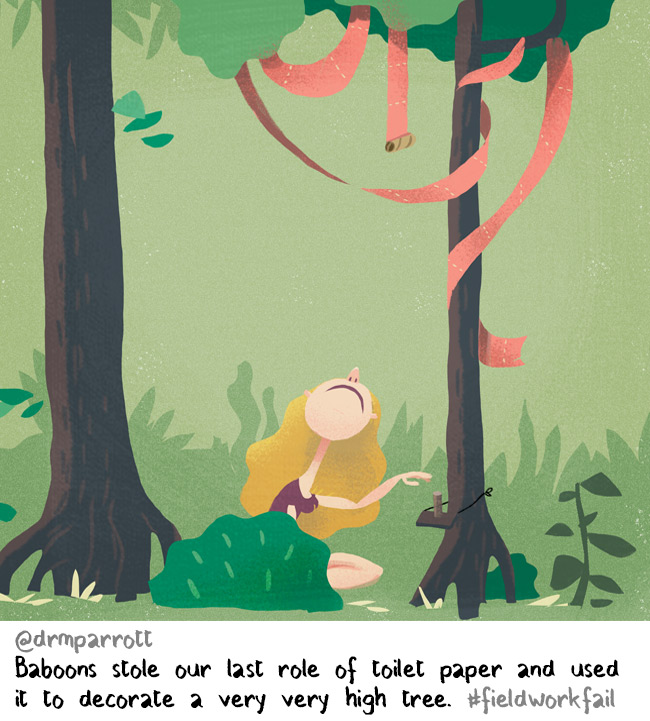
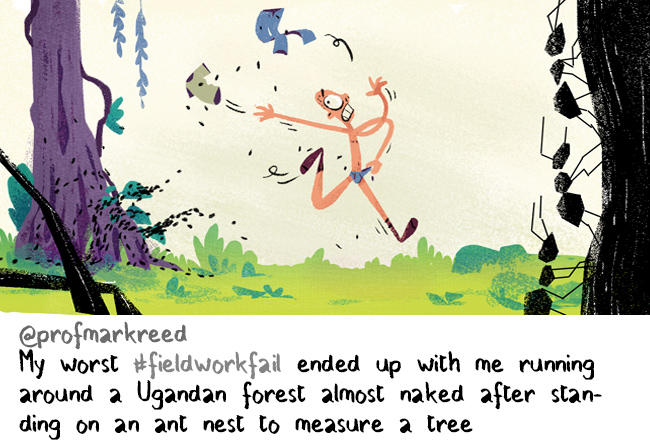

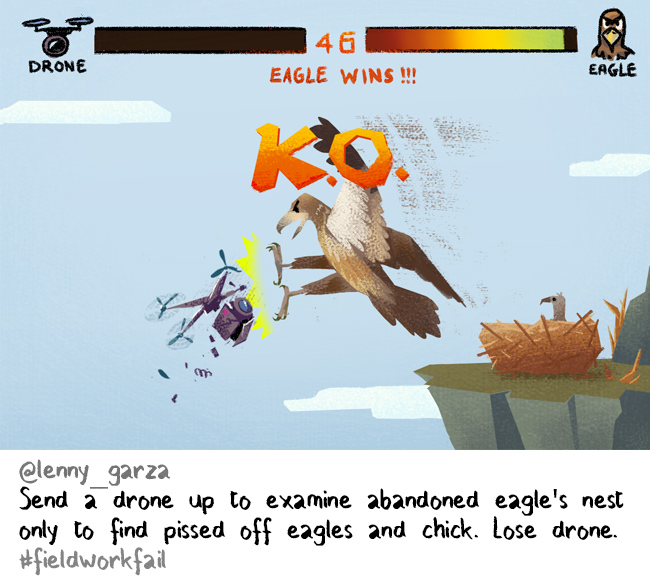
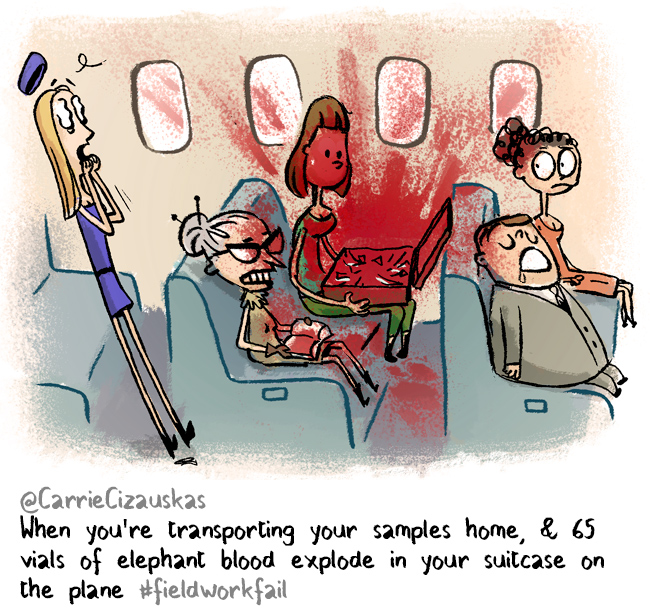

Where were you at this time and why did you need to collect elephant blood ?
I was working in Etosha National Park, Namibia, on a large, collaborative project investigating the ecology of anthrax. Anthrax is an ancient disease (caused by a bacterium) found in endemic pockets worldwide, though the ecology behind anthrax outbreaks has been really poorly understood. There are yearly outbreaks of anthrax in Etosha, primarily in the wet season in plains ungulates such as zebra (my primary study animal). Elephants also experience anthrax outbreaks in Etosha, though typically during the dry season. While I primarily examined how zebra susceptibility to anthrax changed seasonally in this system, in conjunction with changes in things like stress, reproduction, and gut parasite loads, I also did some collaborative work on elephants.
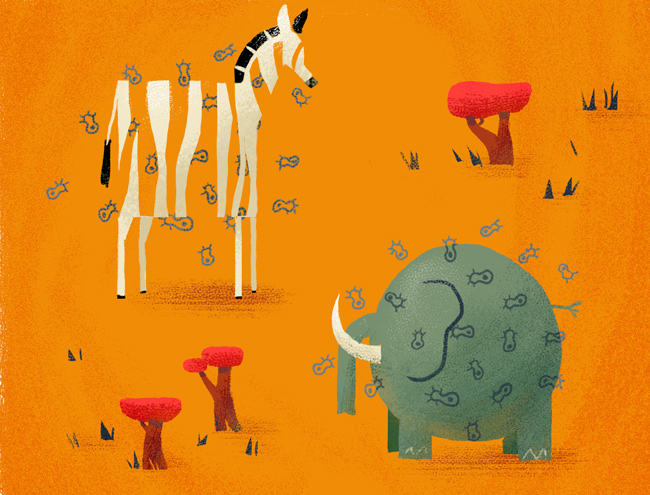
A few other researchers in my group were putting tracking collars on elephants to figure out where they went during different seasons (they can travel really far!), where they were when plains ungulates were experiencing anthrax outbreaks, and how they were using resources. When these animals were anesthetized, I collected several other samples, including feces to look at parasite loads, and blood to look at basic immune functions and to look for anti-anthrax antibodies.
![]()
What happenned after the blood explosion?
I found the problem after I went to take my samples out of my luggage and put them in the lab. Quite a mess, but there was enough left over to do my work.
You never have security issues in the airplane ? We can’t bring shampoo but you have a suitcase full of blood packs ?
Ha, well, it’s common to carry samples back (with permits of course!) in checked luggage – the samples were in my checked bags, so I didn’t have to adhere to the 3oz rule going through security!
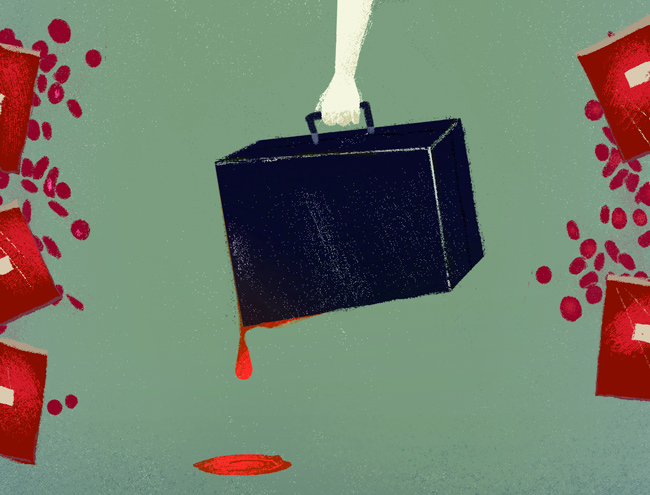
A story to tell ?
